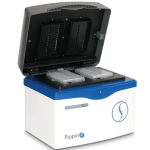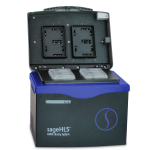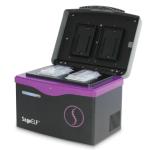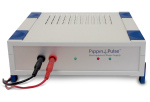 We may be a little bleary-eyed, but so far we’re surviving the Super Bowl of genomics, better known as AGBT. Last night we had a blast co-sponsoring a party out on the golf course with PacBio, and we’re glad so many people came out to eat, drink, and mingle.
We may be a little bleary-eyed, but so far we’re surviving the Super Bowl of genomics, better known as AGBT. Last night we had a blast co-sponsoring a party out on the golf course with PacBio, and we’re glad so many people came out to eat, drink, and mingle.
The quality of scientific talks alone is enough to distinguish AGBT from other genomics conferences; this year’s slate of presentations has been no exception. We enjoyed Matt Sullivan’s talk in the opening plenary session and were delighted to see that he’s still using that carefully honed NGS pipeline for low-input samples in his new lab at Ohio State.
In a talk from the Joint Genome Institute’s Ji Lee, attendees got a nice glimpse of Oxford Nanopore’s sequencing technology in a mini-metagenomics experiment. Lee said her team regularly gets about 500 Mb of 2D sequence per flow cell and that low-input samples have provided sufficient yield for sequencing. They modified the library prep method, adding size selection with BluePippin or PippinHT after shearing to generate 20 Kb libraries — a significant boost from the median read lengths they were achieving before.
We also enjoyed the PacBio workshop yesterday, where scientists shared a number of great projects for which SMRT Sequencing had made a considerable difference in assembly quality. The event focused on human biomedical sequencing applications, so we heard some really nice examples of how long-read sequencing has provided insights for infectious disease, cancer, drug metabolism profiles, and even induced pluripotent stem cells. PacBio users have been deploying many of our automated DNA size selection tools to achieve higher average read lengths for years now, and it’s great to see these ultra-long reads making such a difference.
And now it’s back to the conference. One more day of sessions, and then we can go home and sleep for three straight days!





